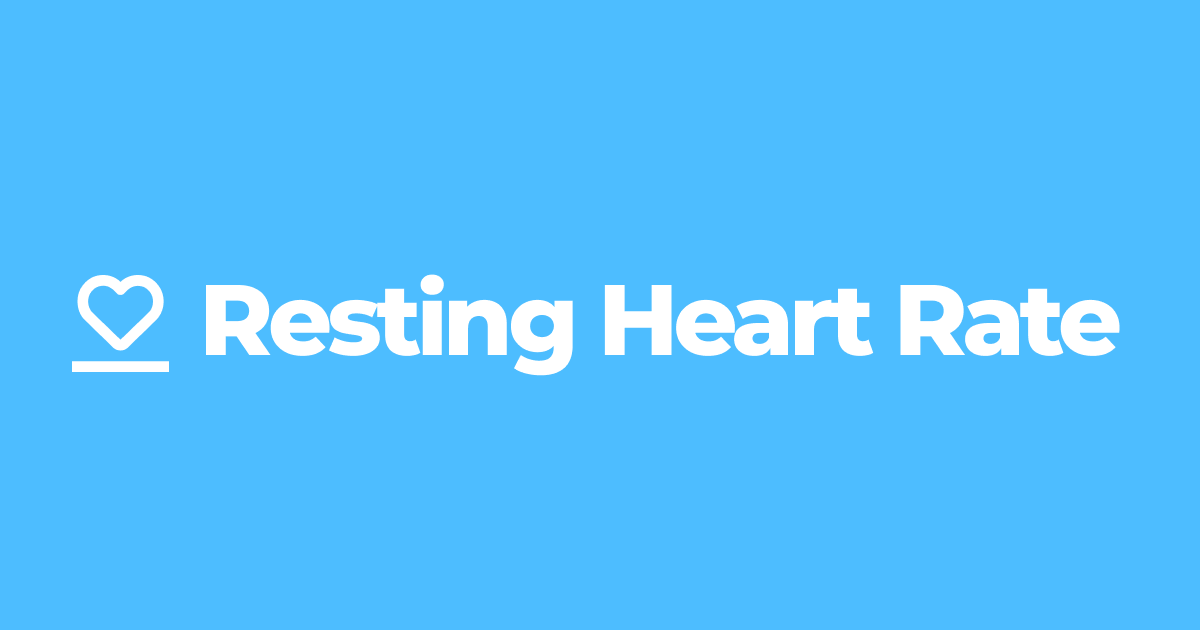
Resting Heart Rate (RHR) is one of the most important biomarkers that measures baseline heart rate when the body is at rest. It represents the number of times the heart beats per minute and is often measured in Beats Per Minute (BPM).
It is a crucial indicator of heart health and overall fitness because it reflects how efficiently the heart is working. In most cases, a lower RHR indicates a stronger and more efficient heart that pumps more blood per beat, which requires fewer beats to circulate oxygen.
Resting Heart Rate (RHR) is strongly associated with cardiovascular health and overall mortality risk. Studies continuously show that a lower RHR correlates with a reduced risk of cardiovascular diseases, and lower all-cause mortality. A higher RHR on the other hand increases the risks for hypertension, heart disease and higher all-cause mortality.
A major study that for 15 years tracked over 53,000 men and women found that those with a resting heart rate (RHR) under 60 beats per minute (bpm) exhibited significantly better cardiorespiratory fitness (CRF). This group also showed the lowest rates of hypertension, diabetes, and high cholesterol.
The same study demonstrated that compared to those with RHR under 60 bpm, an RHR above 80 bpm increased the risk of all-cause mortality by about 38% and cardiovascular mortality by 51%.
This finding is consistent with multiple studies indicating that an elevated resting heart rate (RHR) can double or triple the risk of early death. The 2013 Copenhagen Male Study tracked 2,798 healthy men aged 40–59 for a period of 16 years.
The study controlled for variables like age, smoking, blood pressure, cholesterol, and fitness levels to confirm the reliability of the results. It found that an elevated RHR correlated with a greater chance of early death from any cause, with the risk increasing by 16% for each 10 bpm increment.
Men with an RHR of 81–90 bpm had almost twice the risk of death during the study compared to those with a very low RHR (50 bpm or less). Men with an RHR above 90 bpm had a tripled risk of mortality compared to the low-RHR group.
These numbers held true even when fitness levels were considered, meaning a high RHR is a red flag even if you’re in decent shape.
For adults aged 18 to 64, a normal RHR typically falls between 60 and 100 beats per minute. An RHR consistently above 100 bpm (tachycardia) may indicate stress, illness, or heart problems.
The resting heart rates for men in this age group typically fall between 60 and 90 beats per minute. Women generally have RHR from 65 to 95 beats per minute, slightly higher beats due to smaller hearts and hormonal factors.
The optimal RHR for this age group is 50–70 beats per minute (bpm). Jensen et al. (2013) found that men with RHRs ≤50 bpm had the lowest all-cause mortality risk.
Athletes and physically active individuals can have significantly lower RHR that range between 40 and 50 beats per minute.
In non-athletes, an RHR below 40 bpm (bradycardia) could suggest cardiac issues, especially if accompanied by feelings of dizziness and tiredness.
World-class endurance athletes often have exceptionally low RHR due to their intense training that creates incredibly efficient hearts. The lowest confirmed resting heart rates (RHRs) were recorded for cyclist Miguel Indurain at 28 bpm and biathlete Martin Fourcade at 25 bpm.
The most accurate way to track RHR is to use Fitness trackers and smartwatches like the Fitbit Charge 5 ($130–$150) or Apple Watch SE ($250–$300).
Wrist devices employ optical sensors to measure blood flow and offer ongoing RHR readings. They track RHR automatically overnight and across periods, allowing you to easily monitor whether your RHR is improving or worsening.